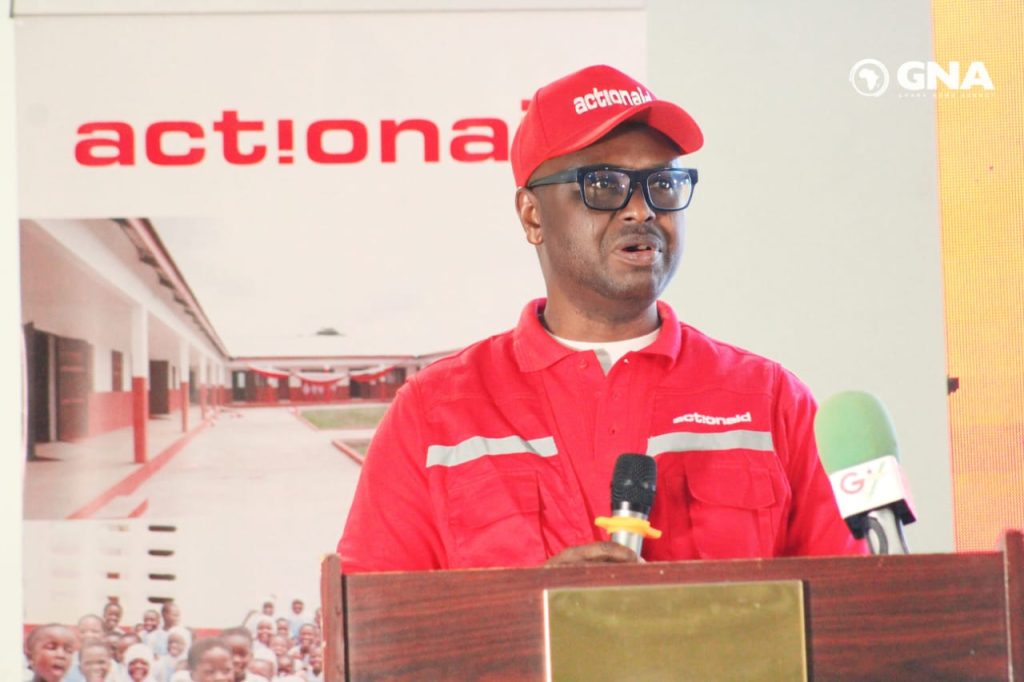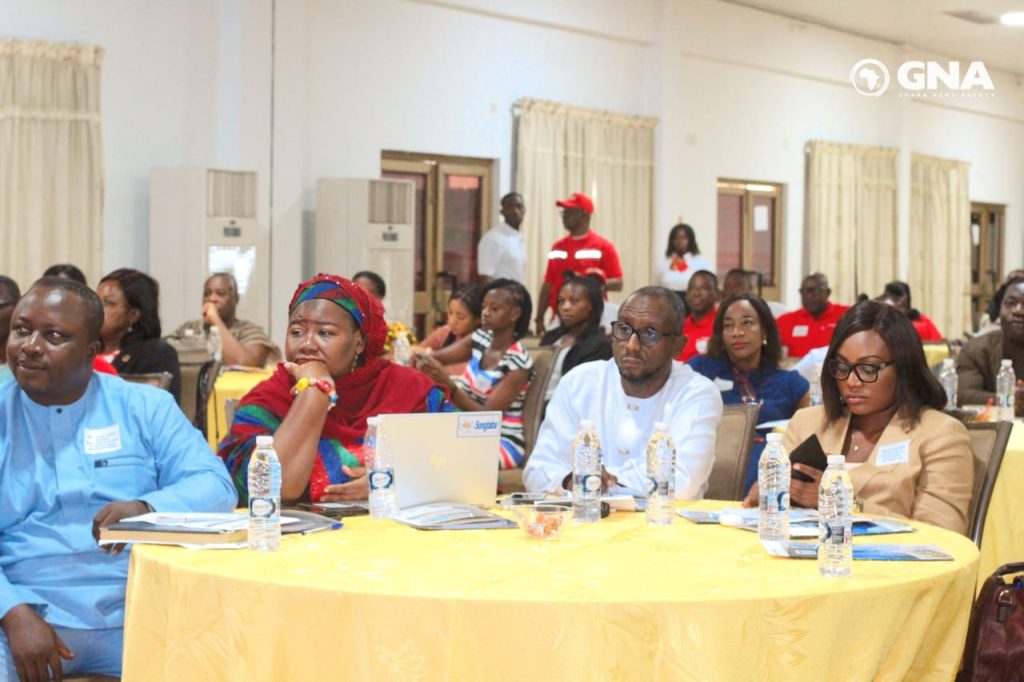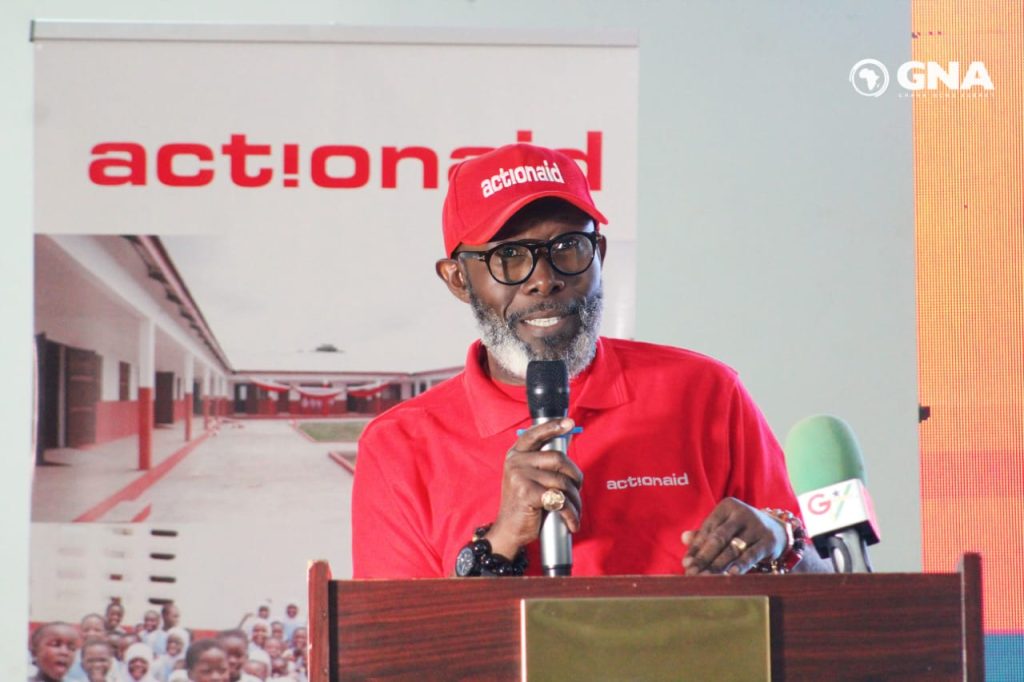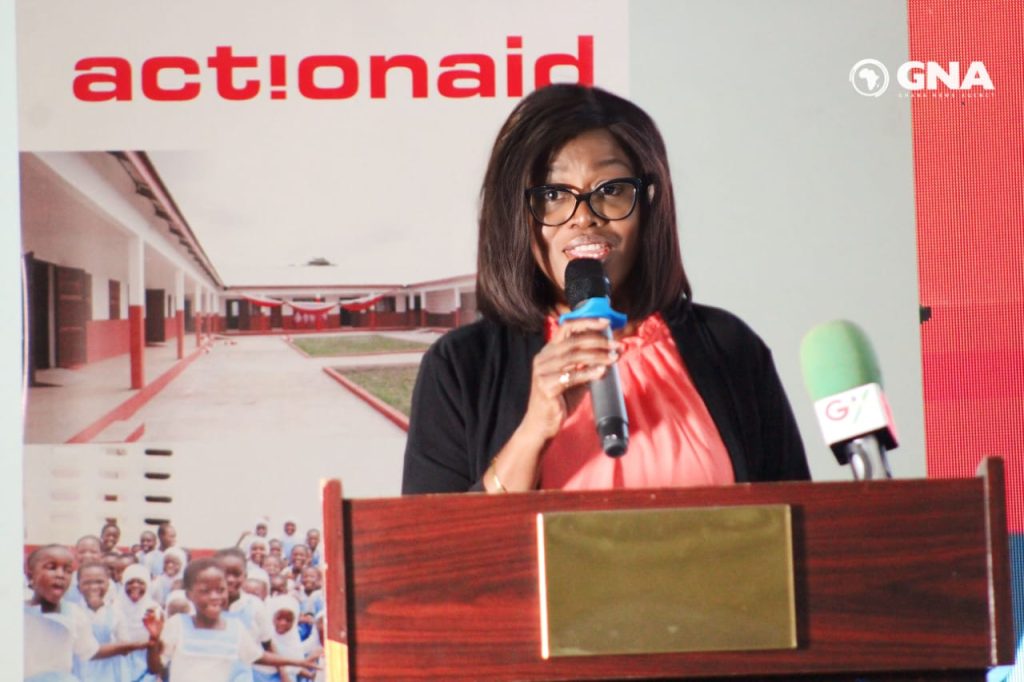By James Amoh Junior
Accra, Nov. 1, GNA – ActionAid Ghana (AAG), a non-governmental organisation and a global justice federation, has launched its five-year Country Strategy Paper (CSP) VII from 2023 to 2028 on the theme “People’s Power for Social Justice.”
The new CSP, christened “Active Citizenship for Social Justice”, reaffirms ActionAid’s commitment to building a just, feminist, green and a sustainable world for all.
It has been developed by incorporating the strategic priorities of the ActionAid’s Global Strategy – “Action for Social Justice” – and decades of community-rooted experience working with people’s organisations, social movements, and youth groups.
Among other interlinkages to the CSP VII, the new strategy will advance economic justice and redistribute women’s unpaid and domestic work through expanding fiscal and policy space and supporting investment in gender-responsive public services and social protection.
Also, it will promote a feminist, green and just transition that builds climate resilience, especially in agriculture led by women and young people.
Mr John Nkaw, Country Director, ActionAid Ghana, speaking at the launch of the CSP VII in Accra on Tuesday, said the widening poverty gap, gender inequality, and increasing injustices around the world called for immediate measures and a community-centred approach to addressing those development challenges.

Ghana’s economy entered an arena of full-brown macroeconomic challenges in 2022 on the back of pre-existing imbalances and external shocks.
Ghanaian households have been under pressure from high inflation and slowing economic growth with inflation, driven by food prices, remaining elevated at 40.1 per cent in August 2023.
The World Bank further warns that poverty is projected to worsen between now and 2025, increasing to nearly 34 per cent (the international poverty line) by 2025, consistent with the muted outlook on growth in services and agriculture and rising prices, which are outpacing the income growth of those at the bottom of the distribution.
Under those extraordinary circumstances, the Country Director said the new CSP VII, in the next five years, would work closely with stakeholders, duty bearers, and all active citizens to help fight poverty and promote the dignity of citizens, especially the vulnerable in Ghana.

He said with support from donor partners, ActionAid Ghana would strengthen existing intervention programmes that addressed issues of gender inequality and poverty.
“Indeed, we will sternly advocate for women’s rights and decent work, gender-responsive public services, sustainable means to advance Ghana’s green economy and resilient livelihoods of female smallholder farmers and youth in agriculture, as well as build and improve citizens’ involvement for accountability,” he added.
Nana Yaw Okyere-Aduachie, Board Chair, ActionAid Ghana, said evidence of media reports globally reiterated that poverty and gender inequality were contributing to poverty.
He said despite the launch of the Sustainable Development Goals (SDGs), which implored countries to act for people and the planet, countries around the world had not been successful in ending extreme poverty and addressing systemic inequalities.
Nana Okyere-Aduachie said national policies around social protection, education for all, gender equality, and women in leadership, among others, had not produced the desired outcome, which usually impacted the development of women and children.

The current situation, he noted, required the immediate attention of global, regional, national, and community-level actors to implement progressive policies and legislation that addressed the strategic needs of affected people.
“These policies will empower the people to take collective actions that address the underlying causes of poverty, gender inequality, and unjust power and balance the impact of visible and invisible power,” he stated.
The ActionAid Ghana Board Chair assured that the new CSP VII would deliver many people from poverty while promoting injustice.
Dr Yaw Osei Adutwum, Minister of Education, whose speech was read on his behalf by Mrs Mamle Andres, Chief Director of the Ministry, said the strive to achieve equality in opportunities, rights and treatment would be daunting without active citizenship, advocacy and demands for accountability.

He said education was a vital ingredient for the development of active citizenship, recognised the in Ghana’s Education Strategic Plan (ESP) 2018 to 2030.
The ESP, the Minister said, set out the vision and policies for realising the ambition of transforming Ghana into a “learning nation”.
“The ESP revolves around the ambition to improve the quality of education for all in Ghana through its core objectives,” he said.
GNA